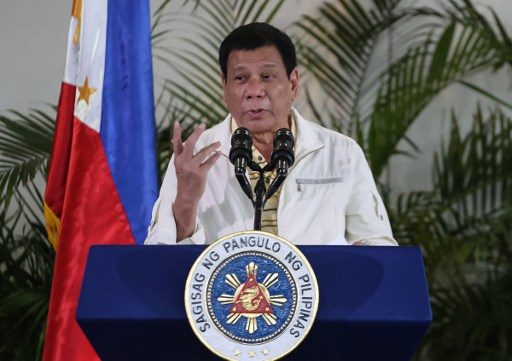SUMMARY
This is AI generated summarization, which may have errors. For context, always refer to the full article.

KUALA LUMPUR, Malaysia – They call it “hybrid regimes,” described as a “combination of elements of authoritarianism with democracy.”
The rise of this sort of hybridization was a common concern at a conference here, attended by leaders in government, civil society, academia, and media from countries across the region.
“These [hybrid regimes] often confuse forms with substance, by adopting the formal characteristics of democracy while allowing little real competition for power with weak respect for basic political and civil rights and respect for the rule of law,” former Belgian prime minister Yves Leterme said.
“Southeast Asia is not immune to this phenomenon.”
Leterme said this increasing trend is not only seen in countries still fully transitioning to democracy, but also in other countries that “have recently backslided from more democratic forms of government into more hybrid ones.”
Former Indonesian president Susilo Bambang Yudhoyono agreed, saying that “attempts to return to authoritarianism” is a “worrying phenomenon” and one of the major challenges that democracy is facing today.
“There’s no single explanation to this. But there is clearly an attempt to swing the pendulum back towards authoritarianism,” he said. “If this trend gains momentum, it is possible that we will see the reversal of democratic expansion that we have seen in recent decades.”
Human Rights Commission of Malaysia (Suhakam) Chairman Tan Sri Razali Ismail expressed a similar concern.
“Even in countries that maintain that they are democratic, there are situations that include harassment of human rights defenders, restrictions on the freedom of assembly and expression, arresting citizens for participating in peaceful protests, intolerance of critical speech… and so on,” he said.
Suhakam and Kofi Annan Foundation jointly organized the conference.
Concern over the Philippines
Other challenges to democracy that were commonly raised included populism, the impact and rise of fake news, and growing nationalism.
While the speakers did not mention specific countries during their speeches, concern over the Philippines’ state of democracy was often discussed on the sidelines of the conference.
Local and international rights groups and observers have raised concerns about the Philippines since the presidency of Rodrigo Duterte, particularly regarding his deadly crackdown on drugs, his statements inciting violence against media and human rights activists, and the persecution of individuals who criticize the government.
Asked to comment on the trend in the Philippines, Leterme told Rappler that his organization, the International Institute for Democracy and Electoral Assistance, is looking at the Philippines “with some concern on recent developments.”
“We think to stick to the rule of law is really essential in a democratic process, even in full acknowledgement of problems in terms of security and drug trafficking and human trafficking,” he said, adding that there was considerable doubt the Philippine police have been lawful in all their actions.
“In the long run, it is only possible to sustainably address these issues by sticking to the rule of law.”
Chito Gascon, the Chairperson of the Commission on Human Rights of the Philippines, also said the country has seen a similar trajectory toward authoritarian tendencies.
“Unfortunately the trends in the Philippines suggest that even the Philippines, which has been one of the democratic lights in the region, is experiencing similar trends in particular in the context of the victory of President Duterte,” he said.
“You have issues around constitutional rights, due process related to the war on drugs, as well as attacks on other branches of government, statements made against constitutional bodies. So it’s something we should all be concerned about.”
Pushing back
Given the presence of this challenge in the Philippines, Gascon urged groups who believe in freedom and human rights “to continue to push back against any real or perceived threats to democracy.”
“There is popular support for the administration but amid that popular support there are individuals and groups – lawyers, the church, academe – that are speaking up against any perceived abuses or crossing of the line,” he said.
“That’s good, that despite the immense popularity, there are those who speak about the rule of law and institutional mechanisms, and we should be supporting and encouraging that.”
While he clarified that “we aren’t saying Mr Duterte is today a dictator,” he did say the “trend or trajectory is there.”
“We do need to learn from our history and from developments both in the region and globally and push back. Do what we can with where we are and what we have and hope it can make a difference.” – Rappler.com
Add a comment
How does this make you feel?
There are no comments yet. Add your comment to start the conversation.